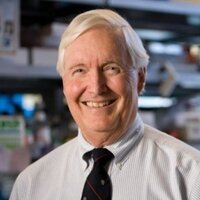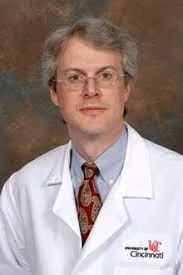
5th Annual Conference
2015
Scott Fraser, Ph.D
Professor Scott E. Fraser has a long-standing commitment to quantitative biology, applying the tools of chemistry, engineering, and physics to problems in biology and medicine. His personal research centers on imaging and molecular analyses of intact biological systems, with an emphasis on early development, organogenesis, and medical diagnostics.
After training in physics (BS, Harvey Mudd College, 1976) and biophysics (PhD, Johns Hopkins University, 1979), he joined the faculty at UC Irvine, and rose through the ranks to become Chair of the Department of Physiology and Biophysics. In 1990 he moved to Caltech to serve as the Anna L. Rosen Professor of Biology, and the Director of the Biological Imaging Center. He is deeply committed to interdisciplinary training and translational research, having helped found the Caltech Brain Imaging Center and the Kavli Institute of Nanoscience, as well as serving as the Director of the Rosen Center for Biological Engineering.
In Fall 2012, he moved to USC to take a Provost Professorship in the Dornsife College of Letters Arts and Sciences, the Children’s Hospital Los Angeles, Keck School of Medicine and the Viterbi School of Engineering. He remains active in interdisciplinary research and serves as the Director of Science Initiatives for the USC campuses.
Garry Fathman, MD
Dr. C. Garrison Fathman, Professor of Medicine and Chief of the Division of Immunology and Rheumatology at Stanford University School of Medicine, also serves as Past Chairman of the Federation of Clinical Immunology Societies (FOCIS) and Director of the Center for Clinical Immunology at Stanford (CCIS).
Dr. Fathman’s contributions in translational medicine in the areas of cellular and molecular immunology, as well as adoptive cellular gene therapy, have brought him international recognition. In particular, he is acclaimed for his establishment and exploitation of the technologies of antigen-specific T-cell cloning and adoptive cellular gene therapy, accomplishments that have facilitated a remarkable series of subsequent advances in understanding conventional immune response and treating autoimmune diseases.
As Founder and Past Chairman of FOCIS, Dr. Fathman led an extremely successful international effort to acknowledge and develop the field of clinical immunology. As Director of the CCIS, the Stanford-based FOCIS Center of Excellence, Dr. Fathman has initiated multi-disciplinary studies to generate novel approaches for the treatment of autoimmune diseases, including insulin-dependent diabetes mellitus, rheumatoid arthritis, and multiple sclerosis. He has also developed state-of-the-art technologies of genomics, proteomics, and metabolomics to integrate approaches to diagnosis, prognosis, and therapy of these diseases.
After receiving his undergraduate degree from the University of Kentucky and his M.D. from Washington University in St. Louis, Dr. Fathman did his residency training at Dartmouth Affiliated Hospitals and completed a fellowship in Immunology and Rheumatology at Stanford University. He then spent four years doing research, first as a Clinical Associate at the Immunology Branch of the National Cancer Institute of the National Institutes of Health and subsequently as a member of the Basel Institute of Immunology in Switzerland. He returned to the United States to join the faculty as Associate Professor of Immunology at the Mayo Clinic in 1977 and was recruited to Stanford University School of Medicine in 1981.
Dr. Fathman is a member of many professional organizations, including the Association of American Physicians, American Society of Clinical Investigation (past Council member) and the American Association of Immunologists, and is the Past-President of the Clinical Immunology Society. He was associate editor of the prestigious Annual Review of Immunology for 25 years and serves on the editorial boards of numerous scientific journals. In addition, he has chaired a variety of national and international professional meetings and has written more than 250 articles on his research. Dr. Fathman also serves on the governing council of TrialNet (a group of studies looking at the prevention and early treatment of type 1 diabetes) and as past-Chairman of the autoimmune disease section of the Immune Tolerance Network.
William Ridgway, MD
William M. Ridgway, M.D., is the Alice W. and Mark A. Brown Chair of Internal Medicine and Director, Division of Immunology, Allergy and Rheumatology. He is a tenured professor of medicine at the University of Cincinnati College of Medicine. He is board-certified in Internal Medicine and Rheumatology by the American Board of Internal Medicine. He is a fellow of the American College of Physicians and the American College of Rheumatology. He earned his medical degree from the University of Rochester and did his residency, clinical fellowship, and postdoctoral physician and research fellowships at Stanford University Hospital and School of Medicine. He was subsequently a tenured faculty member at University of Pittsburgh School of Medicine in the division of Rheumatology, with a secondary appointment in the Department of Immunology, before moving to Cincinnati in 2008.
Dr. Ridgway has published numerous articles in the areas of autoimmunity, immunology, Type 1 diabetes, and autoimmune biliary disease. Dr. Ridgway lectures frequently at the medical school and graduate school level, is a rheumatology fellow preceptor for UC’s arthritis clinic, and a rheumatology consult attending. He has spoken on his research at many national meetings and is a reviewer for the NIH and multiple immunology journals.
Dr. Ridgway has done immunology research for over 20 years starting in C. Garrison Fathman’s lab at Stanford School of Medicine. He currently operates an immunology research lab investigating the immunogenetic control of autoimmunity with special emphasis on Type one diabetes, Primary Biliary Cirrhosis, T cells, and T regulatory cells.



